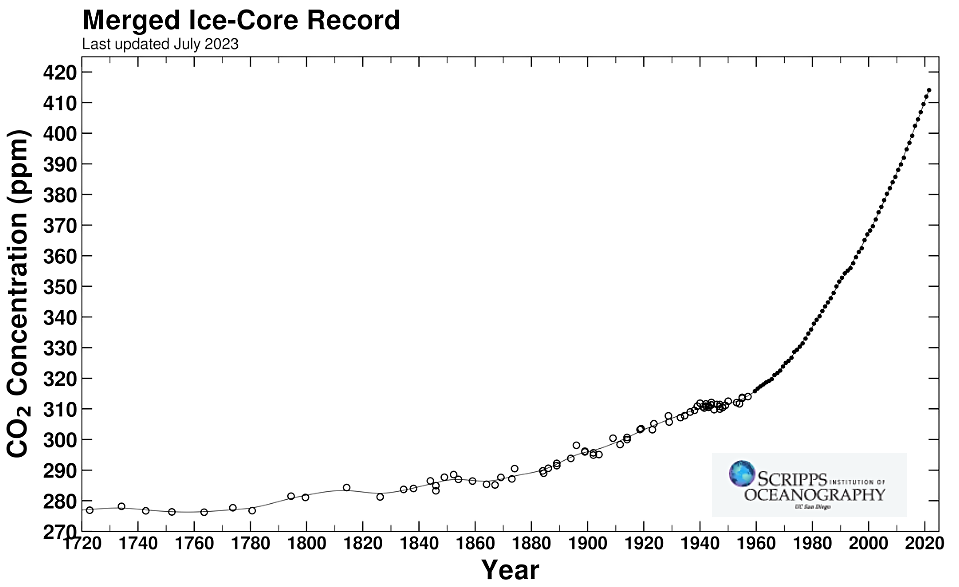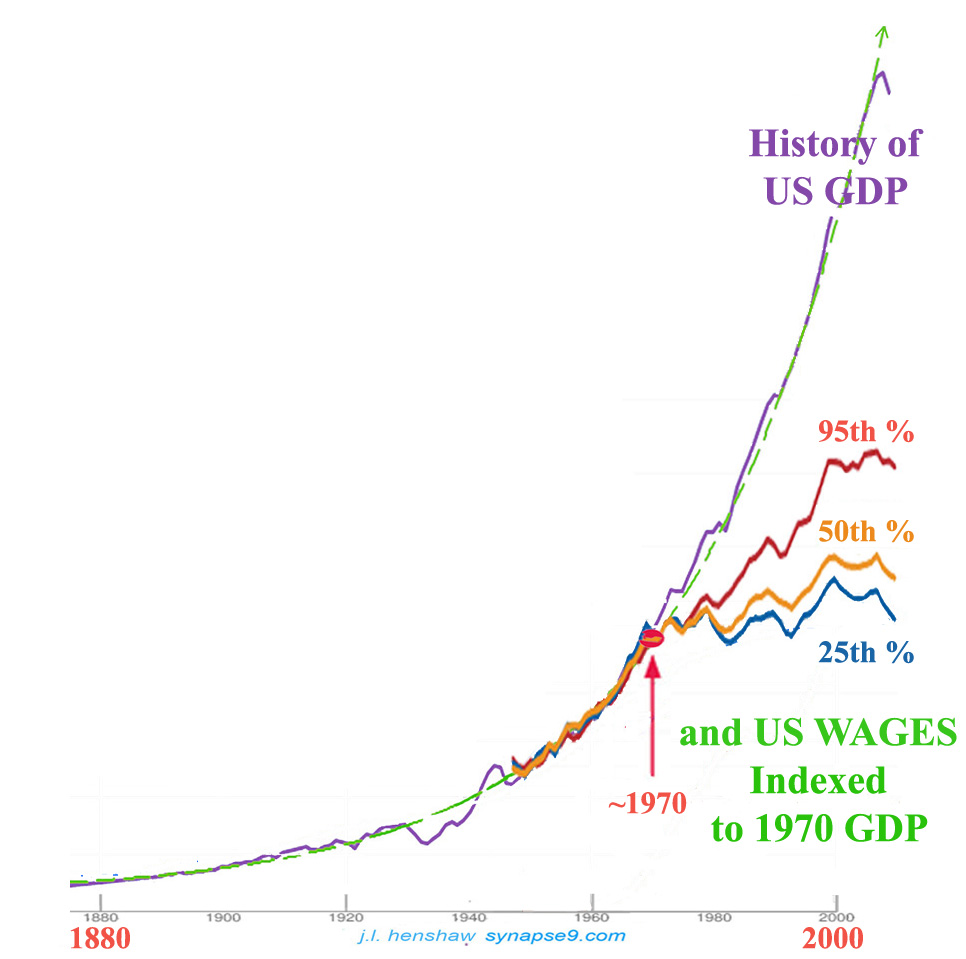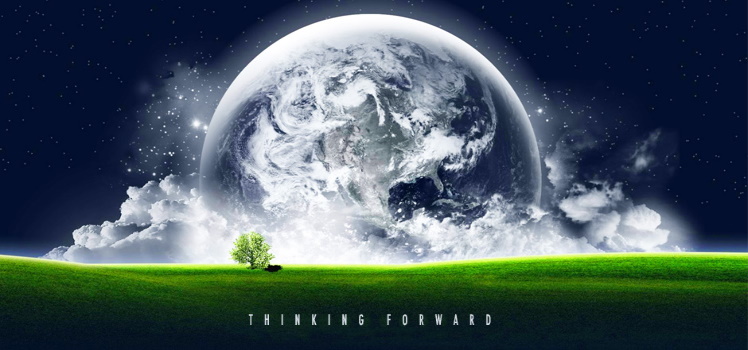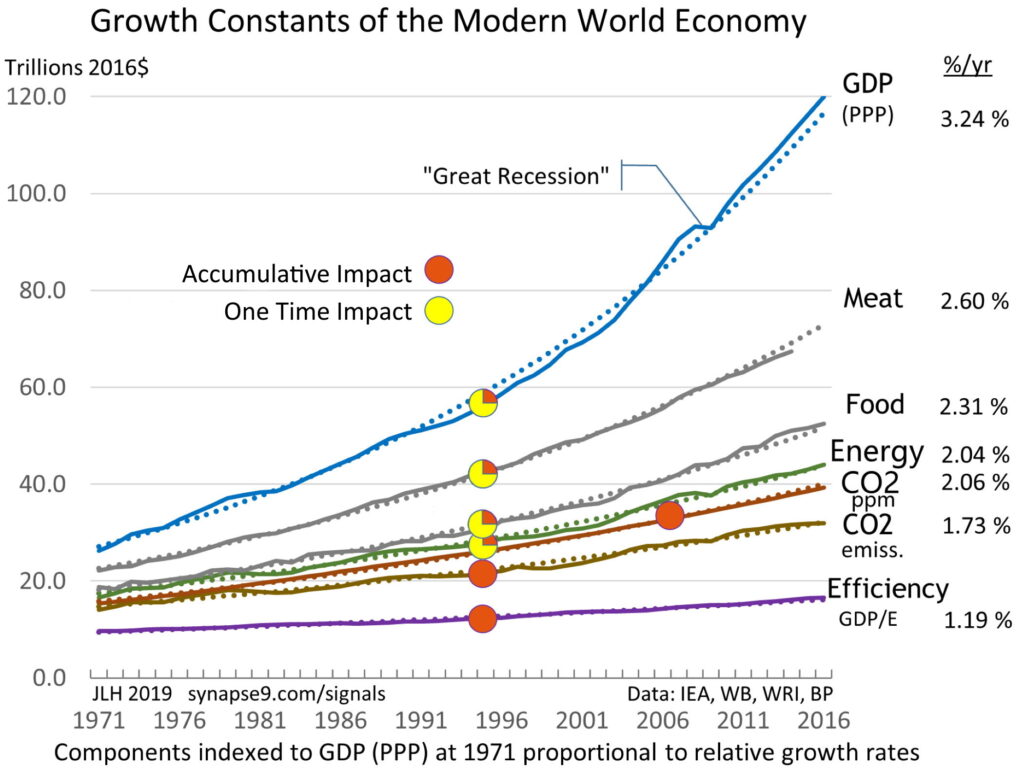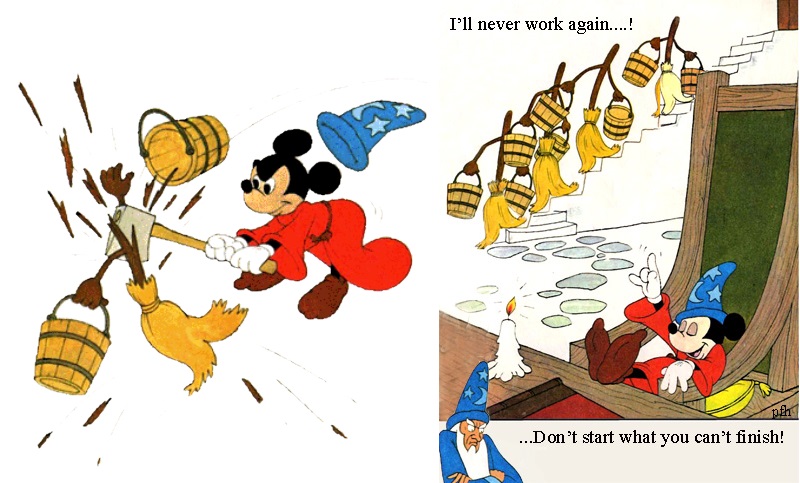It’s both sad and marvelous to now be reading the clear signs that science has become so misguided that only a scientific revolution will keep it from destroying all of what science built. Science has indeed shown us the great beauty of nature and our lives, given us marvelous tools for self-expression, and then also highly unbalanced ways of life now an existential threat to the only living planet we’ll ever know, not to mention threatening to the glorious diversity of human cultures made possible by the blind multiplication of our power to interfere with nature that science enabled and made science so profitable.
One of many bits of clear evidence is the scientific consensus that global warming is caused by our overuse of fossil fuels. Technically, that is a symptom, not at all close to the cause, but aside from that, the consensus scientific response to the symptom is to try overusing something else to replace fossil fuels to see if that works out any better.
Or, you could ask, “How’s this for progress?” This December 2023 data record of the entire history of human-caused CO2 blanketing the earth shows the accelerating acceleration of the climate-forcing trend. Its real value, though, is as remarkably clear evidence that **all our solutions are only accelerating the problem.** You could hardly find a greater or clearer cry in the darkness for a new scientific revolution. Clearly our guidance is way off track.
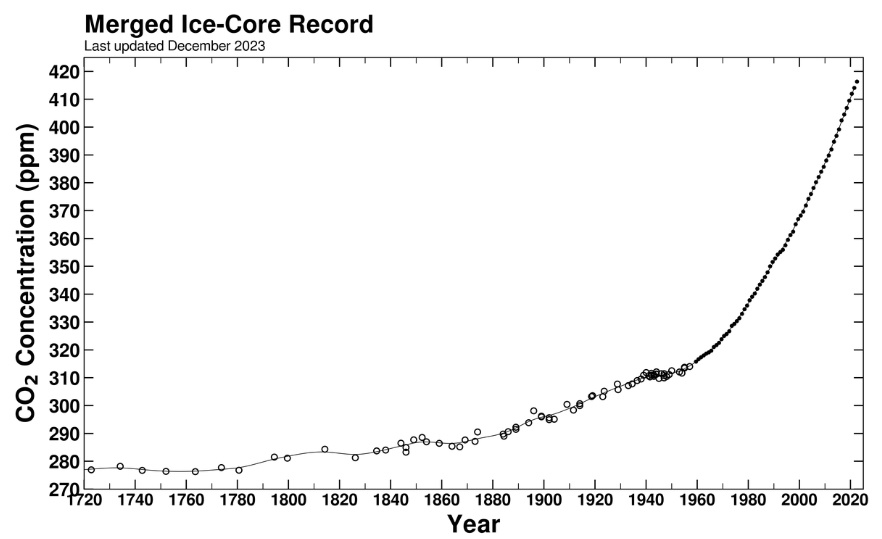
We’ve faced profound contradictions produced by science generation after generation, most not timely nor effectively responded to, some wonderfully enlightening too, and of both the larger and smaller varieties of important confrontations between our minds and nature.
Perhaps going back to the origin of the human species about 850,000 years ago when our peculiar constellation of amazingly perfected designs, our ultimate problem seems to be whatever caused us to be emotionally attached to making up our own realities, given minds and bodies that proved very clearly our sudden emergence back then marked a major departure from evolution.
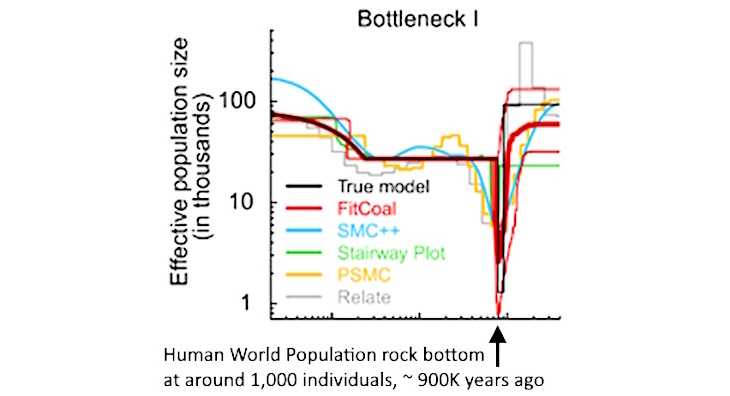
Image from “Genomic inference of a severe human bottleneck during the Early to Middle Pleistocene transition” in Science August 2023
In this story, the rub is that in order for humans to make mental images powerful for influencing our far more complex and varied environments, we clearly had to keep perfecting our ideas and tools and selecting the most powerful for controlling outcomes as we evolved. Given the vast “mismatch in variety” between mind and nature, we’d have to keep leaving out more and more and more of the contextual variation of reality to fashion ideas, giving us more and more power, not noticing that it also divorced us from the contexts from which all other kinds of meaning come.
Thus, we came to represent nature with numbers and formulas, ENTIRELY stripping our images of nature from their contexts. That separation of our powers from the wide and rich variety of the contexts of natural working relationships was the cost. Our mental versions of nature then harmonized our blind power over nature with the warm connections of home and family, the one place in our world, the foundation of our cultural worlds. Coupling our mental worlds, centered around in-context relationships but increasingly dominated by finding abstract rules, taken out of context, selected for power over things over the centuries, is the storyline of our whole history, enriching and impoverishing our chosen way of living, then becoming trapped in using science to multiply our interference with nature for profit, that the math all projects to be potentially infinite. … well, something wrong with the math – no context.
History is replete with all manner of stories about the disastrous course of affairs that lead to, like the story of Adam and Eve or how the most successful civilizations tended to collapse, the rub being that the problem-solving gets too complicated, as documented by Joe Tainter. The familiar fables and famous plays centered on the naturally corrupting influence of power over people and nature are evidence, too. The cause? The cause, apparently, is the oversimplification of the rules of power and the blinding of the people using them to the contexts in which they are being used.
So …. that’s something of a big deal. Humans are also capable of big ideas as well, though, and it’s clear today we may have only one chance left to get the idea out of our heads that the laws of nature are what we think. Could our way of thinking change to being part of the world we live in and came from instead of being in charge of it? Sure, it is very possible. If you learn to read the markers of the difference, you find the diversity and learnability of ways for people to reconnect with the natural world and possibly continue our, in some ways, most remarkable of nature’s great experiments, are growing all over.
What’s in the way is the power of our few hundred years of perfecting our powers, unaware of how ultimately dangerous to ourselves and to life it made our dominant world culture. My most recent contribution to that is in the form of a LinkedIn post yesterday (to celebrate my birthday! :-) on how my views evolved. I come from a multi-generation science and education family and had a marvelous connection with gamey high-school friends and relations who got together in Brooklyn in 1968 to collectively ponder what in the world was happening to us and have fun doing it.
If the LinkedIn post is not accessible, the photo journal with notes linked from there, on the ten years “Where it all happened,” is posted in my library.
Jessie

